Listen, my children, and you shall hear
Of the midnight ride of Paul Revere
—Henry Wadsworth Longfellow (Paul Revere's Ride)
Years ago I attended a Women's History lecture given by a professor of Women's History from UC Riverside. Among others, she talked about a woman who made a midnight ride similar to Paul Revere's during the Revolutionary War. I didn't write the name down, and for a long time I tried to find out who she was.
Later, on a tour of New England, I visited many historic Revolutionary War sites. I asked every museum docent and every tour guide about this woman, and the answer was always a puzzled look and, "No, there's no such person. No woman did a ride like Paul Revere."
Not true! Who trains these people?
It's sad that before 1970, the serious study of women's history was almost non-existent. I suppose it's no wonder that no one had heard of this woman or the many others who have played significant roles in American and world history. According to American Historian Gerda Lerner, before 1970,"People didn't think that women had a history worth knowing."
MARCH IS WOMEN'S HISTORY MONTH
Today, nearly every university has Women's History courses and most offer a doctoral degree in the subject. "Women's History Week" began in 1978 in Sonoma County, California and it included March 8, International Women's Day. In 1987 Congress declared March as Women's History Month.
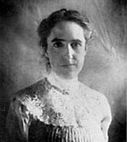
Sybil Ludington (April 5, 1761 – February 26, 1839) was born in Fredericksburg, Kent, New York, the daughter of Colonel Henry Ludington. She was the eldest of twelve children. On April 26, 1777, at the age of sixteen, Sybil rode her horse, Star, 40 miles (twice the distance of either Paul Revere or Jack Jouette) to warn the Patriots the British were coming.
Sybil's father was in charge of the local volunteers. When a soldier arrived at the Ludington household with the news that the British had ransacked the supply center at Danbury, Connecticut, and were heading for Fredericksburg, it was necessary for the Colonel to muster the troops.
Sybil jumped at the chance. She started out at 9 p.m. and ended her ride about dawn the next day. She used a stick to prod her horse, knock on doors, and defend herself against a highwayman. When she returned home, soaked and exhausted, 400 soldiers were ready to march. Thanks to her long ride, the Patriots were able to force the British back to Long Island Sound.
PHILLIS WHEATLEY
On my quest to find out more about Sybil Ludington, I ran on to another woman I have to mention.
Phillis Wheatley was America's first black woman to be published. A respected author and poet, she was also a patriot and symbol for abolitionists.
Phillis was born in West Africa (probably present day Gambia or Senegal) and sold into slavery at the age of seven. In America she was purchased by a Boston family named Wheatley. The family's 18-year-old daughter, Mary, and son, Nathaniel, taught her to read and write. By the age of 12 she was reading Greek and Latin; at 14 she wrote her first poem. John Wheatley, a progressive thinker, recognized her unique talent and supported Phyllis's education.
The next year, in 1773 (age 20), she traveled with Nathaniel Wheatley to London where chances of publication were better. She was introduced to high society, and they were quite enthusiastic about her work. Selina Hasting, the Countess of Huntingdon, supported Phillis's poetry, and Wheatley's first book of poems was published in London in 1773, dedicated to the Countess
Phillis's poems were about learning and virtue, patriotism, battles, and the greatness of America, but she was reluctant to write about slavery. One poem was about George Washington, then the leader of the Patriot Army, which she read to him in person. Phillis was given her freedom in 1778, when John Wheatley provided for her freedom in his will. Soon after, his daughter Mary died.
Phillis married a free black grocer, but they lived in poor conditions and lost two babies. She died in childbirth with her third child in 1784 at the age of 31. The child outlived his mother only by a few hours.
She is one of three black women honored at the Boston Women's Memorial, and is remembered for many first time accomplishments for a women in her day.
"In every human Beast, God has implanted a Principle, which we call Love of Freedom;
It is impatient of Oppression, and pants for Deliverance."
—Phillis Wheatley
Resources
http://www.poetryfoundation.org/poem/173903
http://www.womeninbio.org/events/special-events/?gclid=CPy8lfvwpMsCFQYIaQodeVYFhA
http://www.infoplease.com/spot/womensintro1.html
http://score.rims.k12.ca.us/score_lessons/women_american_revolution/
https://en.wikipedia.org/wiki/Sybil_Ludington
https://en.wikipedia.org/wiki/Phillis_Wheatley
http://www.americaslibrary.gov/jb/revolut/jb_revolut_poetslav_1.html
http://www.encyclopedia.com/topic/Phillis_Wheatley.aspx
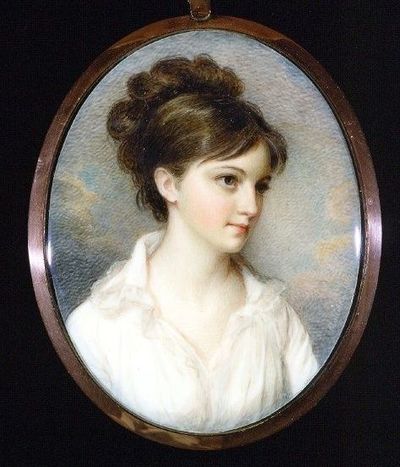
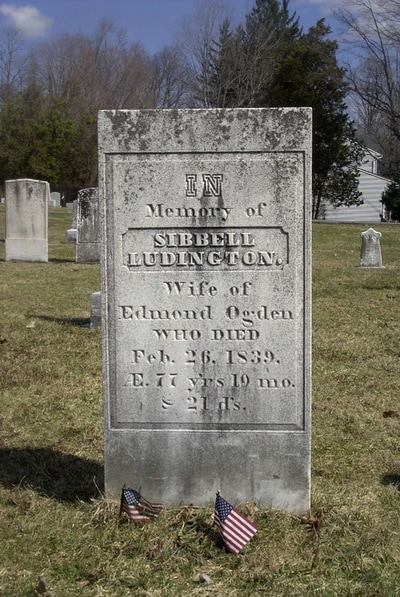
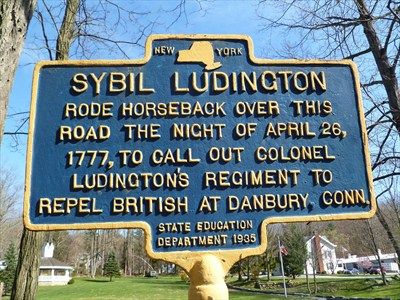
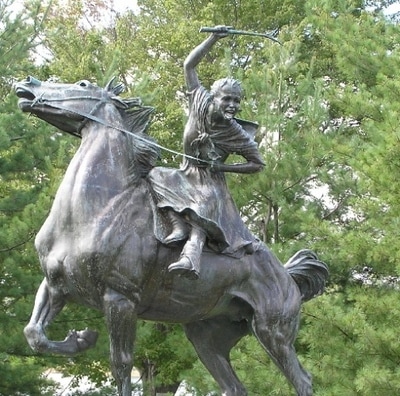
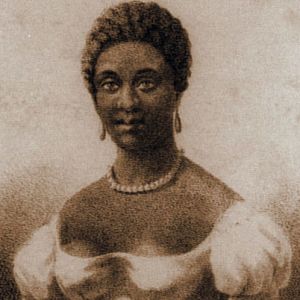
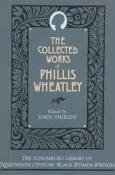
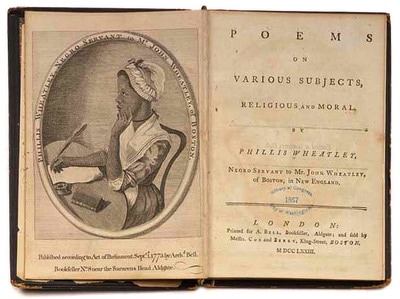
 RSS Feed
RSS Feed